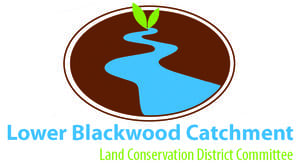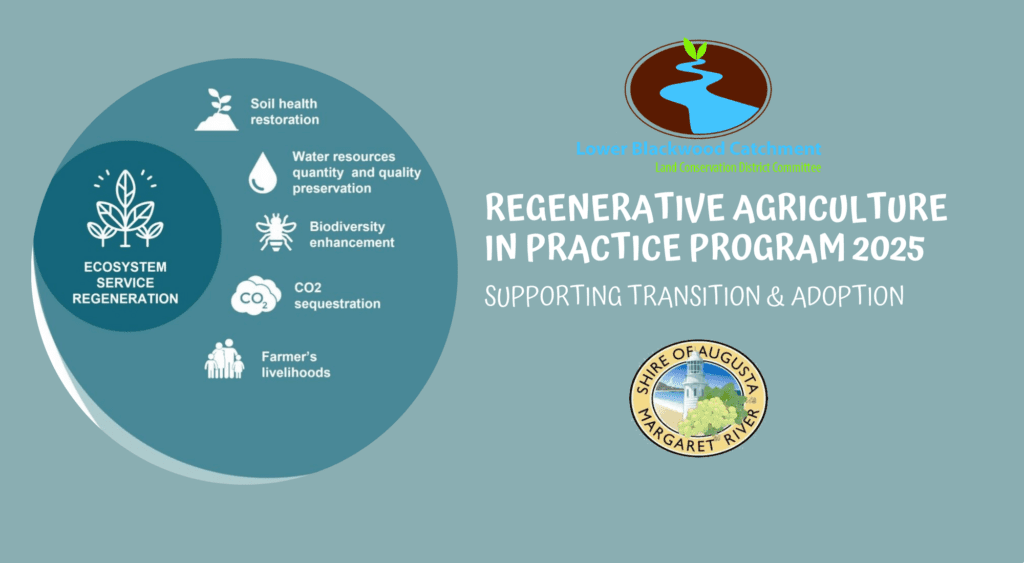
This project has now been completed. Digital resources developed during the program can be viewed below:
Program Digital Resources
Podcasts:
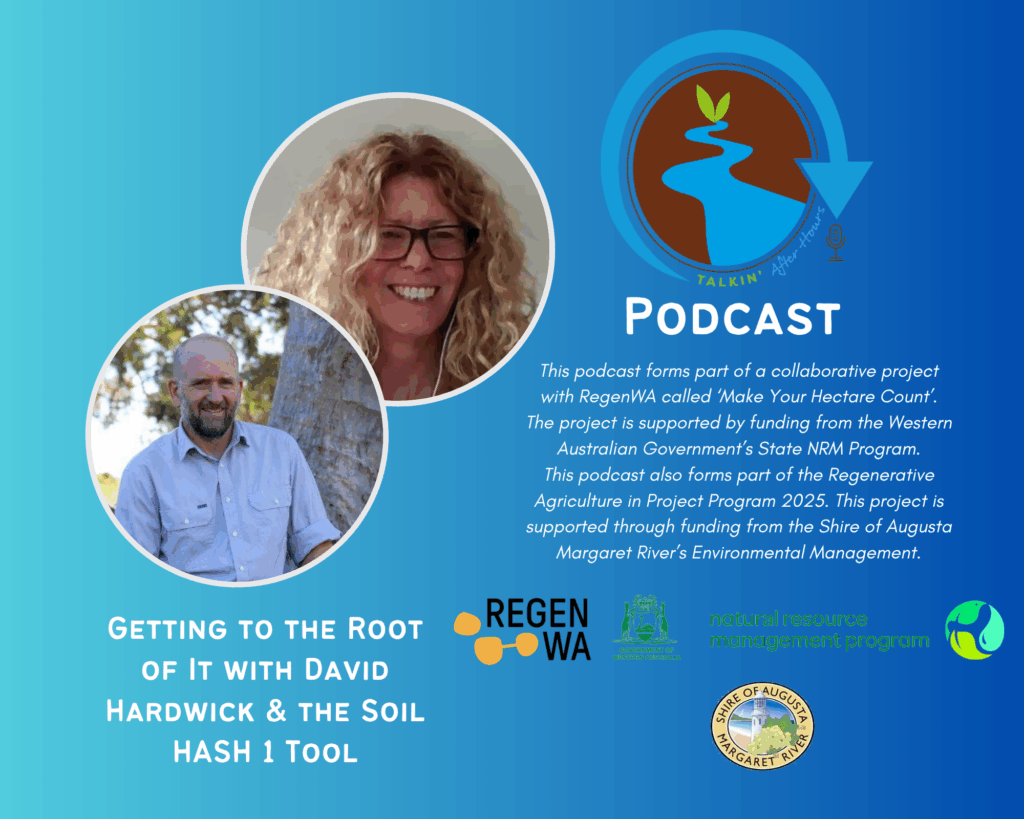
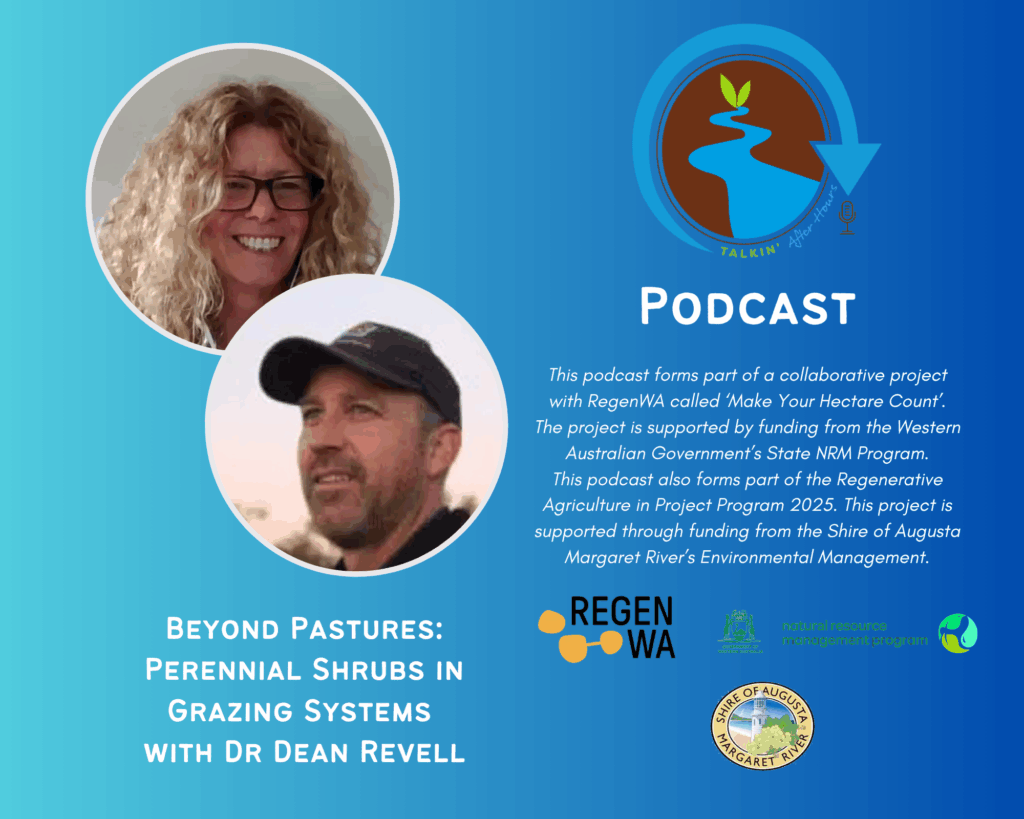
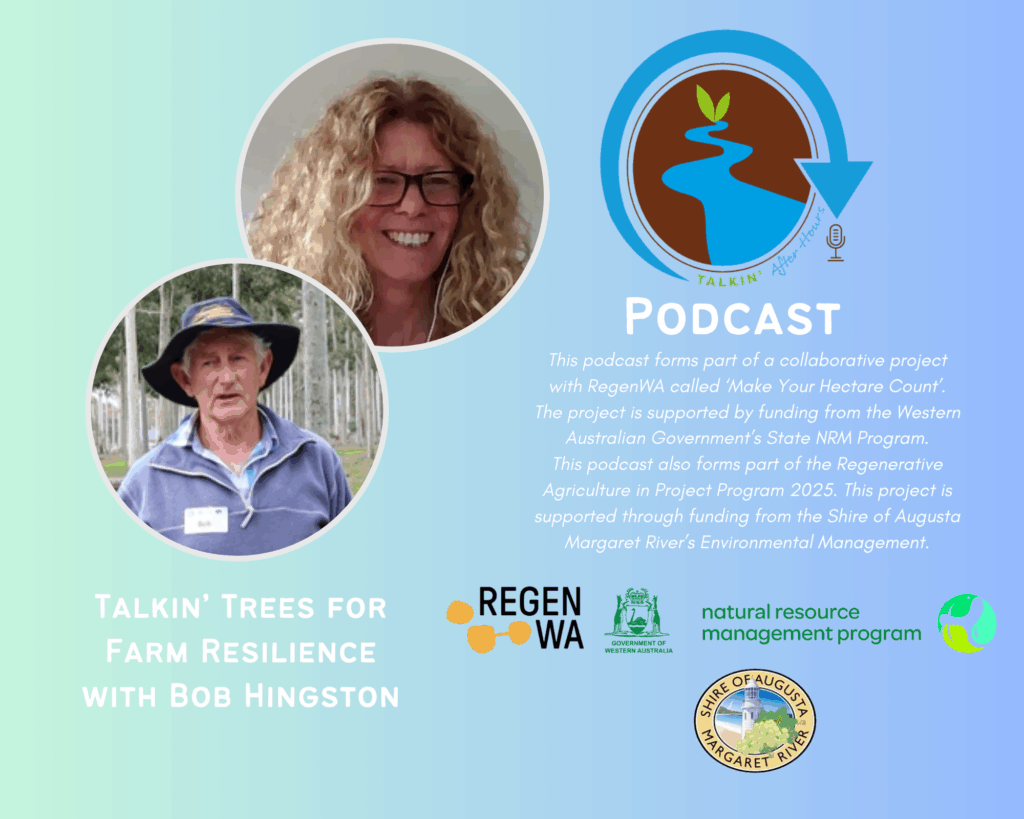
Case Studies:
What is Regenerative Agriculture?
Regenerative agriculture is not a ‘one size fits all’ approach to farming or land management. There’s also no strict rule book, but the holistic principles behind the dynamic system of regenerative agriculture are meant to restore soil and ecosystem health, and leave our land, waters, and climate in better shape for future generations.
It’s important to appreciate that this is not a new idea and not all who practice these principles use the label. Regenerative agriculture practitioners take a broader view of their role in the world, especially in terms of soil and nutrient cycles and realize that working landscapes provide not just products but also ecosystem services like carbon sinks, water recharge, and pest & disease prevention.
Regenerative Agriculture in Practice Program (RAPP) 2025
RAPP 2025 aims to build awareness, provide advice, & encourage adoption of regenerative agriculture practices with a particular focus on new & inexperienced landholders in the shire.
RAPP 2025 will provide participants with an introduction to the fundamentals of an ecologically based approach to agriculture, that aims to achieve profitable production whilst regenerating & enhancing ecosystem services, including increased/improved:
- soil nutrient cycling & carbon sequestration
- water infiltration & storage
- functional biodiversity
- plant and animal health
In addition the program will continue its focus on:
- the importance of including participant ‘partners’ or other members of the enterprise team in the learning journey; and
- the importance of ongoing monitoring, recording & sharing of progress (success & failure for continued learning & benchmarking).
- the importance of staying connected & sharing knowledge with other producers transitioning to an ecologically based approach to agriculture
This focus we believe is critical to achievement of our overall goal of building a strong and effective Regenerative Agriculture Community of Practice in our region.
The Program In Summary:
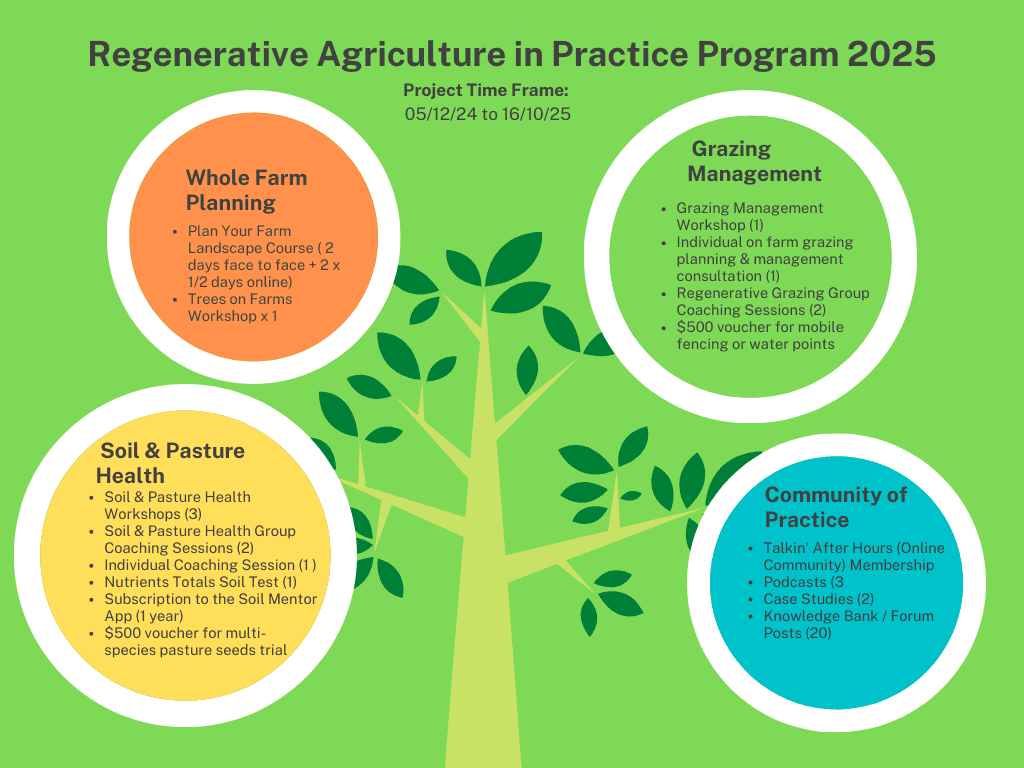
Skip to Eligibility Requirements & Application
Who can apply? RAPP 2025 is open to 10 grazing enterprises (2 participants/enterprise) within the Shire of Augusta Margaret River who want to take their first steps into regenerative agriculture and gain a good understanding of the fundamental principles that underpin it.
What’s in the program?
- 1 x Plan Your Farm Landscape Course
- 1 x Soil Health – the Basics Workshop
- 1 x Understanding Soil Fertility & Plant Nutrition Workshop
- 1 x Regenerative Grazing Workshop
- 1 x one on one Regenerative Grazing coaching session / enterprise
- 1 x one on one Soil & Pasture Health coaching session / enterprise
- 1 x Introduction to Biodiverse Pastures Workshop
- 1 x Trees on Farms Workshop
- 4 x on farm peer group sessions
- 1 x EAL Totals Soil Test / enterprise
- 1 x $500 voucher towards mobile fencing or water / enterprise
- 1 x $500 voucher towards on farm biodiverse pastures trial (pasture seeds) / enterprise
- 1 x 1 year subscription to Soil Mentor App / enterprise
- 1 x annual membership to Talkin’ After Hours (LCDC Online Community)
What else?
The translation of the program aims from ‘learning to doing’ will be further supported through the development & delivery of additional ‘how to’ content related to regenerative agriculture, including podcasts, & case studies. All recorded and written content will be made available to participants and other land managers through the Lower Blackwood LCDC’s online community & information hub ‘Talkin’ After Hours’
Eligibility Requirements
RAPP 2025 is open to 10 grazing enterprises (2 participants / enterprise) within the Shire of Augusta Margaret River who want to take their first steps into regenerative agriculture and gain a good understanding of the fundamental principles that underpin it. To be accepted into the program you must confirm that:
- Your farm enterprise is within the Augusta Margaret River Shire boundaries.
- You are grazing or intending to graze livestock on your enterprise.
- You, or at least 1 member of your enterprise, agree to actively participate in all program components.
- Agree to become a member of the LCDC’s Talkin’ After Hours Online Community
- Agree to be included as a potential case study (a one-page profile on who you are and why you chose to be part of the program, a summary of your production system & current landscape function, your, aims, challenges & desired outcomes). The case study will be housed on the LCDC website & in program publications.
- Pay the subsidised program participation fee: $600 + GST/enterprise (actual value of participation is $7000 + GST/enterprise).
- The participation fee entitles your Farm Enterprise to:
- Two places/enterprise in all program workshops & peer group sessions
- 1 x 3 hour Regenerative Grazing coaching session / enterprise
- 1 x 2 hour Soil & Pasture Health coaching session / enterprise
- 1 x $500 voucher towards mobile fencing or water / enterprise
- 1 x $500 voucher towards on farm biodiverse pastures trial (pasture seeds) / enterprise
- 1 x 1 year subscription to Soil Mentor App / enterprise
- Membership to Talkin’ After Hours
Application deadline extended to Wednesday December 18th.
Want to talk to someone about this program?
Contact the Project Manager Kate Tarrant at E: kate.tarrant@lowerblackwood.com.au | M: 0409 203 056
Our Presenters & Facilitators




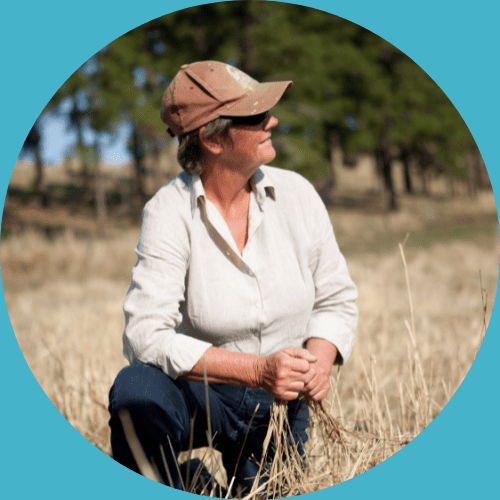

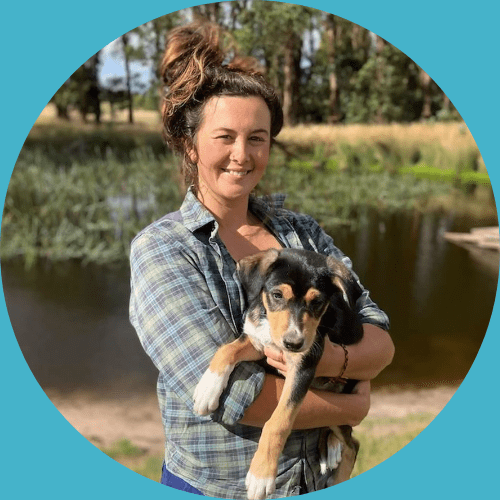
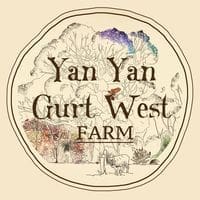
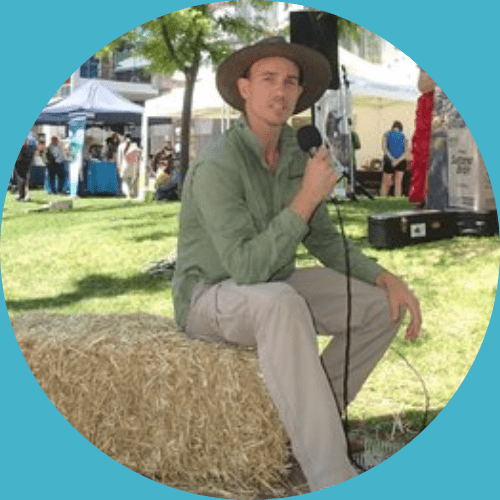
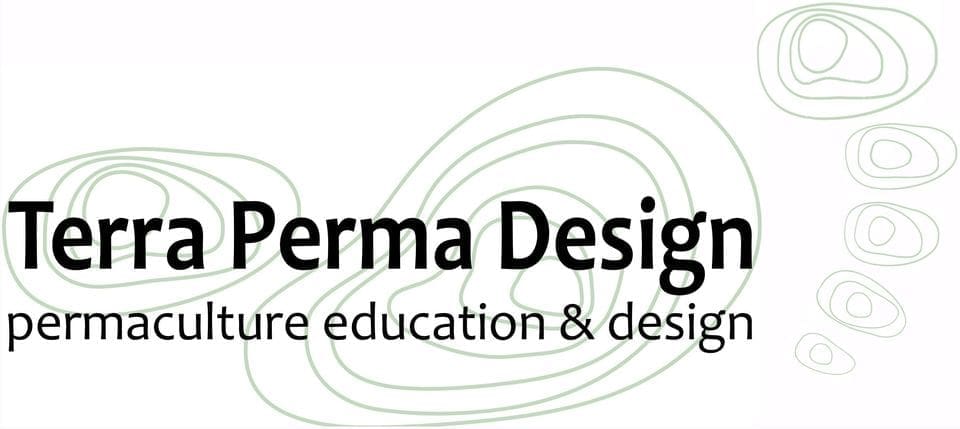
Mark Tupman – Productive Ecology
For over two decades Mark has been active in the fields of organic/biodynamic production, permaculture, sustainability, agro-ecology and holistic management and in between times managed an orchard, animals and food gardens on his own property.
Mark provides consultation and education & training in the establishment of integrated living production systems. In addition to his consulting work, Mark works as a project consultant to the Lower Blackwood Landcare Group and is the RAPP program coach.
David Hardwick – Soil Land Food
David is a professional agroecologist working in soil and regenerative agriculture extension and consulting all over Australia for 20 years. He completed a Dairy Traineeship and Diploma of Agribusiness at TAFE NSW before completing a degree in Ecological Agriculture at the University of Sydney. His focus is on regenerative and organic farming systems, land management and rural change.
David has worked in the conventional, organic and regenerative sectors and across grazing, horticulture, dairying and cropping systems. For the last 10 years he has been helping farmers and graziers all over Australia build their skills and confidence to manage soils using fun and practical activities as part of his highly successful Digging Deeper Soils Courses and Bootcamps. In 2020 he started teaching soils online!
Dr Judi Earl – AIMS
Judi gained her PhD in pasture ecology when she conducted the first studies describing the benefits to pasture composition from planned grazing. She has extensive experience in how grasslands and pastures respond to grazing and fertility management and is a widely respected speaker on these matters.
Establishing the AIMS consultancy in 1998 and a Holistic Management™ educator since 2002, Judi’s main area of interest is working with land managers to enhance the condition and productivity of their land through improved understanding of ecosystem function and more effective utilisation of available resources.
Kristy Stewart – Yan Yan Gurt Farm
Kristy is a land steward, community connector and 5th generation farmer born at Yan Yan Gurt West, an award winning sheep and agroforestry farm on Wadawurrung and Gadubanud Country in Victoria.
She holds a B. Agricultural Sciences and works in the education space as a Landcare project officer, is the Industry Development Manager for Sustainable Table and is part of the team co-managing her family farm where she runs educational tours on agriculture, agroforestry and landscape connection.
Find Kristy on:
Charles Otway – Terra Perma
As a passionate and experienced edible plant garden designer, Charles is a fully qualified trainer and popular public speaker. Growing up in Pemberton on small farm Permaculture rootstock, he has seen, applied and eaten much of the theory and techniques of Permaculture and Regenerative Agriculture. More recently he has moved into farm design and Regenerative Agriculture consultation with a return to family farms in Pemberton in 2018.
This Lower Blackwood LCDC program is supported through the Shire of Augusta Margaret River Environmental Management Fund

